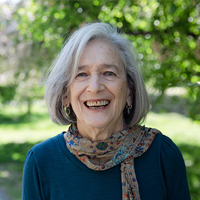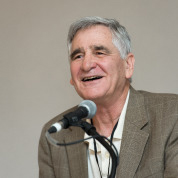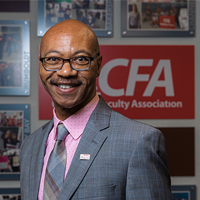CAL Academic Freedom Lecture Series
Is Academic Freedom in Crisis? Can it be Saved?
Throughout the academic year of 2022-2023, San Diego State University’s College of Arts and Letters (CAL) will convene a series of events aimed at reflecting on both the purported value of academic freedom and the broader debates it has inspired on college campuses and beyond. CAL will host a series of distinguished experts, reflecting a diversity of perspectives on the topic. All events will be in-person and Zoom accessible.
“How to Resolve the Tension between Academic Freedom and Racial Justice”
Featuring: Jennifer Ruth and Johnny Eric Williams
Tuesday, Feb. 7, 2023, 3:30-5 p.m.
Location: Finch Conference Room (Arts and Letters 660)
Watch the event recording
Does academic freedom need to be modified to address racial justice? Do the most vulnerable minorities even enjoy academic freedom in practice? Hear from the co-author of an influential new study, “It’s Not Free Speech: Race, Democracy, and the Future of Academic Freedom” and a leading critical scholar on sociology and racism whose own academic freedom came under attack.
 Jennifer Ruth (Ph.D., Brown University) is an associate dean in the College of the Arts and professor in the School of Film at Portland State University. She writes extensively about academic freedom and higher education in outlets such as The New Republic, Truthout, Academe, Chronicle of Higher Education, Inside Higher Ed, and Ms. She also writes on literature and cinema for publications such as Senses of Cinema and Philosophy and Literature. She serves on the American Association of University Professors (AAUP) Committee A (for academic freedom), served two years as the faculty editor of The Journal of Academic Freedom and three years as Portland State-AAUP’s Vice President of Academic Freedom and Grievances. She is a contributing editor to the “Academe” blog.
Jennifer Ruth (Ph.D., Brown University) is an associate dean in the College of the Arts and professor in the School of Film at Portland State University. She writes extensively about academic freedom and higher education in outlets such as The New Republic, Truthout, Academe, Chronicle of Higher Education, Inside Higher Ed, and Ms. She also writes on literature and cinema for publications such as Senses of Cinema and Philosophy and Literature. She serves on the American Association of University Professors (AAUP) Committee A (for academic freedom), served two years as the faculty editor of The Journal of Academic Freedom and three years as Portland State-AAUP’s Vice President of Academic Freedom and Grievances. She is a contributing editor to the “Academe” blog.
Ruth is the author of “Novel Professions: Interested Disinterest and the Making of the Professional in the Victorian Novel” (The Ohio State, 2006) and, with Michael Bérubé, “The Humanities, Higher Education and Academic Freedom: Three Necessary Arguments” (Palgrave, 2015) and “It’s Not Free Speech: Race, Democracy, and the Future of Academic Freedom” (Johns Hopkins, 2022).
 Johnny E. Williams (M.A., University of Arkansas 1986; M.A., Brandeis University 1990; PhD., Brandeis University 1995) is professor of sociology at Trinity College in Hartford, Connecticut. He specializes in social movements, political sociology, cultural sociology, racism, sociology of science and religion. Professor Williams’s primary area of research investigates how culture (i.e., shared beliefs, values and meaning systems) sustains and challenges social order. He is the author of two books: “African American Religion and the Civil Rights Movement in Arkansas” (University of Mississippi Press 2003) and “Decoding Racial Ideology in Genomics” (Lexington Books 2016). He has also authored numerous articles about the role of culture in politics, social movement mobilization and scientific knowledge production.
Johnny E. Williams (M.A., University of Arkansas 1986; M.A., Brandeis University 1990; PhD., Brandeis University 1995) is professor of sociology at Trinity College in Hartford, Connecticut. He specializes in social movements, political sociology, cultural sociology, racism, sociology of science and religion. Professor Williams’s primary area of research investigates how culture (i.e., shared beliefs, values and meaning systems) sustains and challenges social order. He is the author of two books: “African American Religion and the Civil Rights Movement in Arkansas” (University of Mississippi Press 2003) and “Decoding Racial Ideology in Genomics” (Lexington Books 2016). He has also authored numerous articles about the role of culture in politics, social movement mobilization and scientific knowledge production.
Professor Williams is currently writing two book manuscripts “The Persistence of White Sociology” and “White Public Sociology Does Not Equal Organic Sociology: False Claims, White Supremacy, and Misplaced Diversity.” The former explores how sociology’s theories, practices, and ideology work to sustain systemic racism/white supremacy while the latter examines how sociology, particularly European and North American sociology, is not inherently public nor critical but rather an instrument of oppression. His argument runs counter to the assumption that sociological knowledge production seeks to explain how the social world works to change it for the betterment of all humanity.
Past Lectures
Featuring Ellen Schrecker
Tuesday, Nov. 15, 4:30-6 p.m.,
Location: Finch Conference Room (Arts and Letters 660)
Watch the 11/15 event recording
The preeminent historian on American higher education from the McCarthy era to the present recounts the 1960s campus protests on free speech, racial justice, and the Vietnam War. She argues that this era both marked an exhilarating era for challenging the status quo and sparked an attack on academic freedom and higher education that continues to this day. Come learn about the roots of today’s unprecedented assault on academic freedom and what can be done.
 Ellen Schrecker is an American historian and author who has written extensively about McCarthyism, political repression, and American higher education. She holds a Ph.D. from Harvard, taught there and at NYU and Princeton, before ending up at Yeshiva University from which she retired as a full professor in 2013. Her latest book, “The Lost Promise: American Universities in the 1960s” (University of Chicago Press, 2021), provides the first comprehensive analysis of American higher education’s most turbulent decade, while her study of McCarthyism, “Many Are the Crimes: McCarthyism in America” (1998) is considered the definitive study of that phenomenon. She is currently working with two other scholars on a collection of essays about the current culture wars against higher education.
Ellen Schrecker is an American historian and author who has written extensively about McCarthyism, political repression, and American higher education. She holds a Ph.D. from Harvard, taught there and at NYU and Princeton, before ending up at Yeshiva University from which she retired as a full professor in 2013. Her latest book, “The Lost Promise: American Universities in the 1960s” (University of Chicago Press, 2021), provides the first comprehensive analysis of American higher education’s most turbulent decade, while her study of McCarthyism, “Many Are the Crimes: McCarthyism in America” (1998) is considered the definitive study of that phenomenon. She is currently working with two other scholars on a collection of essays about the current culture wars against higher education.
Featuring Henry Reichman and Charles Toombs
Tuesday, Oct. 18, 4:30-6 p.m.
Location: SDSU Physical Sciences-130 and Zoom
 Henry Reichman is professor emeritus of history at CSU East Bay; former vice president of the American Association of University Professors (AAUP); and from 2012 to 2021 chair of AAUP's Committee A on Academic Freedom and Tenure. He is the author of “The Future of Academic Freedom” (Baltimore, Johns Hopkins University Press, 2019) and “Understanding Academic Freedom” (Baltimore, Johns Hopkins University Press, 2021). At CSUEB he served multiple terms as department chair and as chair of the academic senate and for nine years represented his campus on the Academic Senate of the CSU. From 2003-2012 he was a member of the CFA collective bargaining team.
Henry Reichman is professor emeritus of history at CSU East Bay; former vice president of the American Association of University Professors (AAUP); and from 2012 to 2021 chair of AAUP's Committee A on Academic Freedom and Tenure. He is the author of “The Future of Academic Freedom” (Baltimore, Johns Hopkins University Press, 2019) and “Understanding Academic Freedom” (Baltimore, Johns Hopkins University Press, 2021). At CSUEB he served multiple terms as department chair and as chair of the academic senate and for nine years represented his campus on the Academic Senate of the CSU. From 2003-2012 he was a member of the CFA collective bargaining team.
 Charles Toombs is professor and immediate past chair of Africana Studies, San Diego State University. His areas of specialization and publications are Africana literature. He is president of the California Faculty Association (CFA) and a vice president of Service Employees International Union (SEIU) California. He is in his second year as chair of AAUP’s Committee A on Academic Freedom and Tenure. He is a member of the Board of Advisors for the National Center for the Study of Collective Bargaining in Higher Education and the Professions. He chairs SEIU’s national Higher Education Council group on racial equity. He was one of six U.S. union leaders invited by the Shanghai Education Union for meetings in China, March 2018. He is committed to antiracism and social and cultural justice and is a national and local leader in these areas. He has presented on numerous panels and meetings addressing strategies for labor unions to prioritize anti-racism and social justice in their organizing, structures, and other work. He is currently working on a book focused on how race, anti-racism, social justice, and dismantling systemic oppression have invigorated and increased participation in the U.S. labor movement.
Charles Toombs is professor and immediate past chair of Africana Studies, San Diego State University. His areas of specialization and publications are Africana literature. He is president of the California Faculty Association (CFA) and a vice president of Service Employees International Union (SEIU) California. He is in his second year as chair of AAUP’s Committee A on Academic Freedom and Tenure. He is a member of the Board of Advisors for the National Center for the Study of Collective Bargaining in Higher Education and the Professions. He chairs SEIU’s national Higher Education Council group on racial equity. He was one of six U.S. union leaders invited by the Shanghai Education Union for meetings in China, March 2018. He is committed to antiracism and social and cultural justice and is a national and local leader in these areas. He has presented on numerous panels and meetings addressing strategies for labor unions to prioritize anti-racism and social justice in their organizing, structures, and other work. He is currently working on a book focused on how race, anti-racism, social justice, and dismantling systemic oppression have invigorated and increased participation in the U.S. labor movement.
